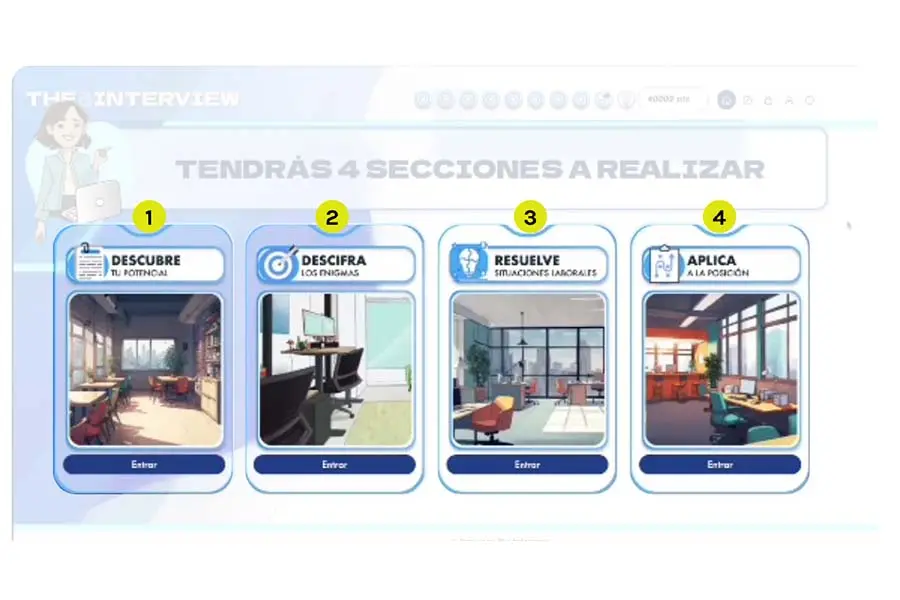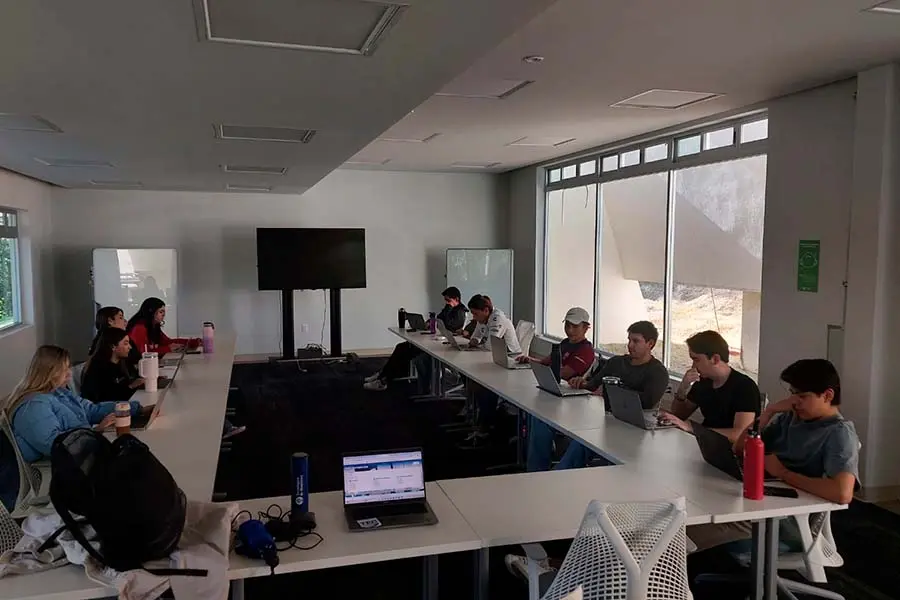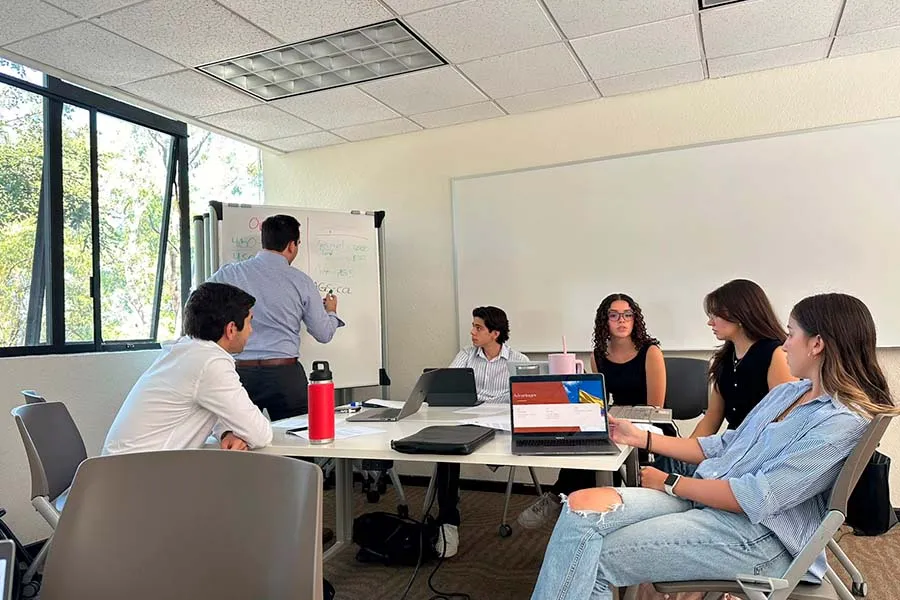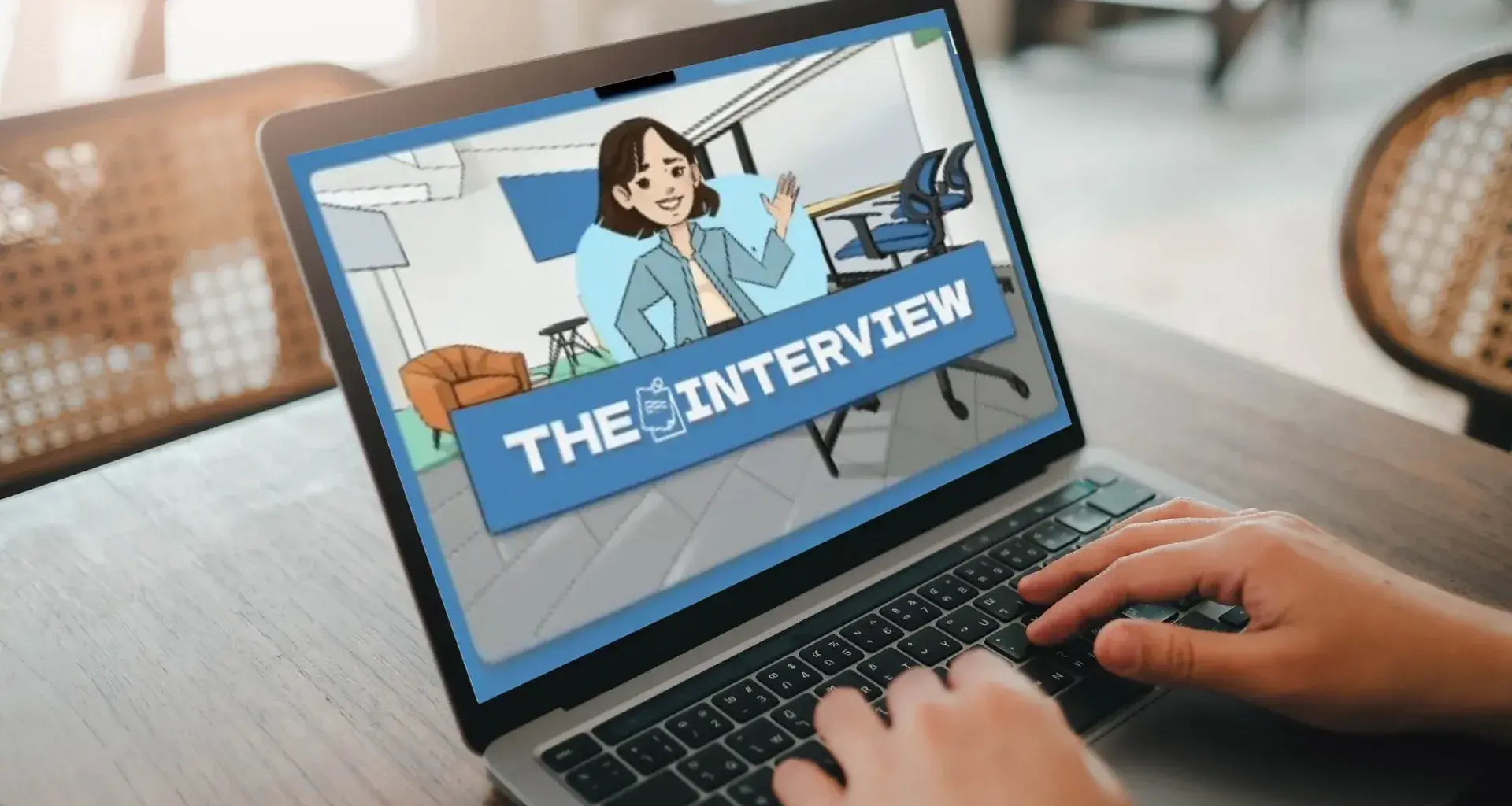Can you tackle professional business challenges while playing?
This is possible in The Interview, a video game-style simulator developed at Tec de Monterrey that boosts skills with immersive dynamics to recreate business selection processes.
The tool has tested the skills of over 3,300 business students nationwide, with logic puzzles, ethical dilemmas, and a final stage that simulates real-world scenarios from professional life.
“Incorporating simulators like this one not only enriches the academic experience but also prepares our students for the challenges of professional life,” said Laura Zapata, Associate Academic Dean of the Tec’s School of Business.
The simulator was designed by 25 educators from the School of Business through its International Case Center.

Like a video game for business
The Interview has an environment very similar to that of a video game, in which players collect badges.
This simulator seeks to promote learning, foster critical reflection, and provide immediate feedback, which enables students to identify areas of improvement before proceeding to their final semesters.
“Our goal is to help students review key aspects from their areas, consolidate what they’ve learned up to the fifth semester, and provide them with a snapshot of their progress, indicating their strongest areas and those that need improvement,” said Zapata.
The Interview consists of four key segments:
1. Discover your potential: Initial evaluations to identify skills.
2. Crack the codes: Logic and memory puzzles designed to reinforce knowledge.
3. Solve problems in the workplace: Ethical and professional dilemmas that simulate real experiences in companies.
4. The Big Challenge: A final exam in which students demonstrate what they’ve learned so far.
“In The Interview, I solved real-life cases such as deciding on the cheapest route and transport, which country to go to, or how to forge a connection with a foreign company,” said Max Canchola, who’s studying for a bachelor’s degree in International Business (LIN) at León campus.
“I really liked it because it’s something new. I’m happy because it helped me to review general aspects of the International Business area.”

Simulator created by Tec educators
25 expert educators from different business areas were involved in developing The Interview.
Designed and planned over the course of a year, this tool was conceived as part of the Tec’s educational model, which seeks to incorporate active learning methodologies.
It was applied during Intermediate Evaluation Week, from October 21 to 25, to over 3,300 students and supervised by 150 professors nationwide.
During the simulation, professors from the eight business degree programs also gave feedback to students based on their results.
For Nathalia Jaime Neri, a LIN student from León campus: “The constant interaction and feedback I received over the week helped keep me interested and motivated, which made it a memorable experience.”
According to Giselle Rentería Núñez, Program Director of the Bachelor’s Degree in Business Transformation and Strategy on Hidalgo campus:
“During this assignment, the students told me that these types of decisions had been very valuable to them. Seeing the results also really helped them to reflect and learn.
“Congratulations on the results. The simulator is really well made, dynamic, and applies gamification perfectly.”
“We want our students to experience situations that are even closer to what they’ll face in their careers.” - Martha Moreno

Next step: Adding artificial intelligence
Although the simulator will continue to be a key tool in skills training and evaluation, it will also evolve into a more immersive and interactive experience.
According to Martha Moreno, Director of the International Case Center at the School of Business, the goal is for the next version of The Interview to incorporate artificial intelligence to personalize feedback for students in real time.
It will do so through an avatar that interacts more fluidly and dynamically.
What’s more, virtual reality will enable it to recreate more complex and realistic workplace scenarios, where students can practice their skills in simulated environments that reflect the challenges of professional life more accurately.
“We want our students to experience situations that are even closer to what they’ll face in their careers, providing them with practical tools and detailed diagnostics on their progress,” explains Martha Moreno.
The next implementation of these technologies is scheduled for the end of 2024.
ALSO READ:





